How to Draw a Mercedes-Benz E Class
On our site, there are already a huge number of very different guides about the cars of this brand, and now we will add a new guide to this collection and show you how to draw a Mercedes-Benz E Class.
To sketch an E-Class, we will use a simple yet realistic style, which will be achieved primarily using shadows. The more realistic and academic the shadows are, the more 3D your car will look.
In addition, in this Mercedes E Class drawing tutorial we will show you the most striking features of the design language of this German company.
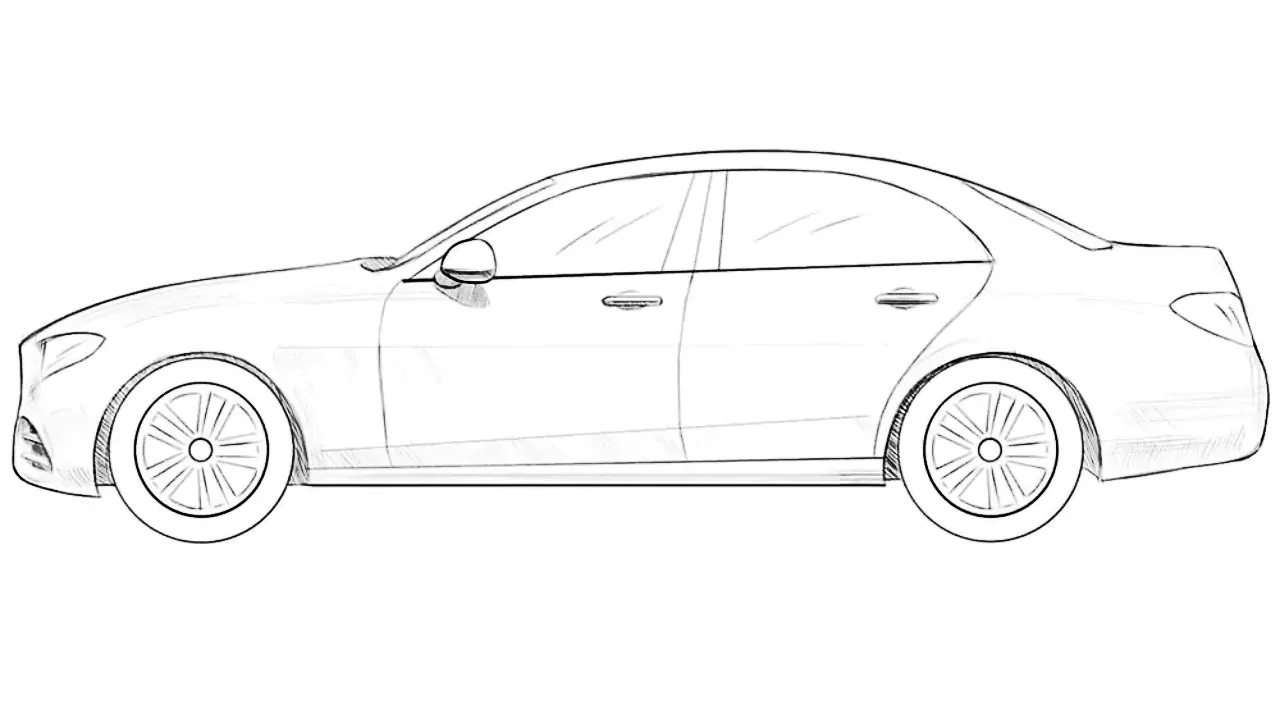
How to draw a Mercedes-Benz E Class: step-by-step tutorial
Step 1 – Sketch the loose framework of the sedan
Begin with the most basic outlines of the Mercedes-Benz E Class. Use light, loose lines to mark the body’s proportions and position on the paper. This business sedan has smooth shapes, elongated body, and classic full-size car outline
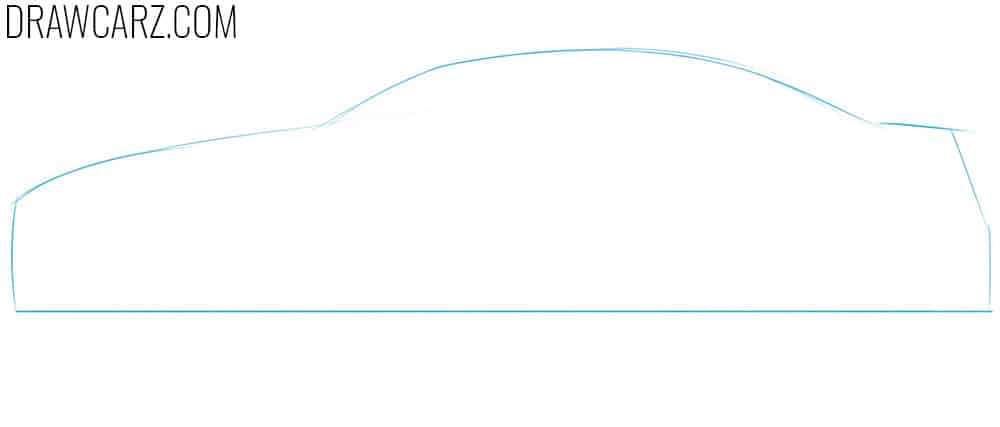
Step 2 – Add the smooth wheel arches and windows
Draw rounded wheel arches of the E-Class at both the front and rear. Make them smooth and symmetrical. Above, sketch the long strip of windows that defines the sedan’s profile. The bottom line of the window frame should be straight and the top line should have a long and smooth curve.
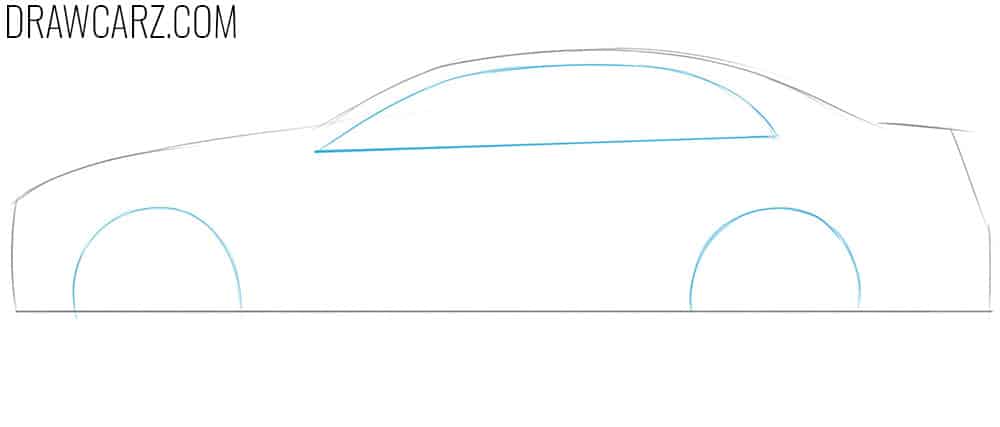
Step 3 – Smooth out the contours of your E Class
Refine the front and rear bumpers, making the lines more accurate and elegant. Work on the roofline, making it smooth and continuous. In this stage, also sketch the outlines of the windshield and rear window. Make sure they follow the car’s proportions without being too large. You can also clean up extra construction lines to clarify the shape.
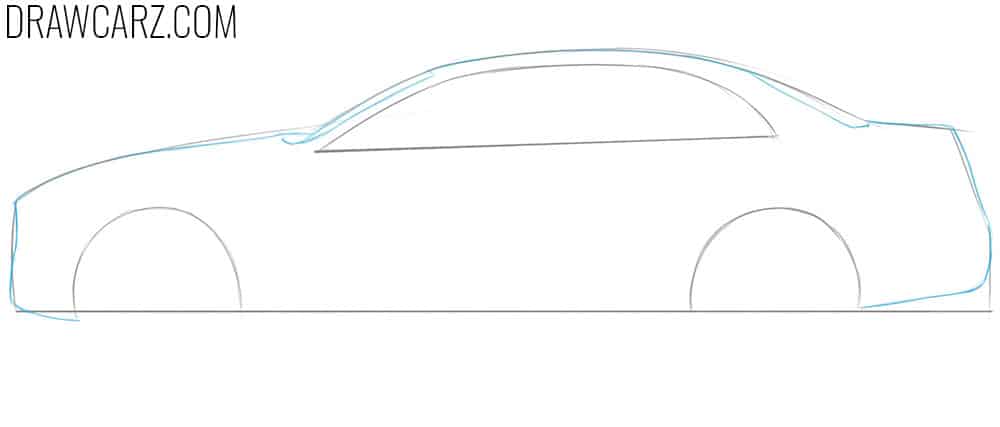
Step 4 – Illustrate the signature E Class lighting elements
Draw the headlights and tail lamps, trying to convey the Mercedes-Benz style. Add the side edge of the front air intake under the headlights. Step back from your luxury sedan drawing occasionally to check for symmetry and balance.
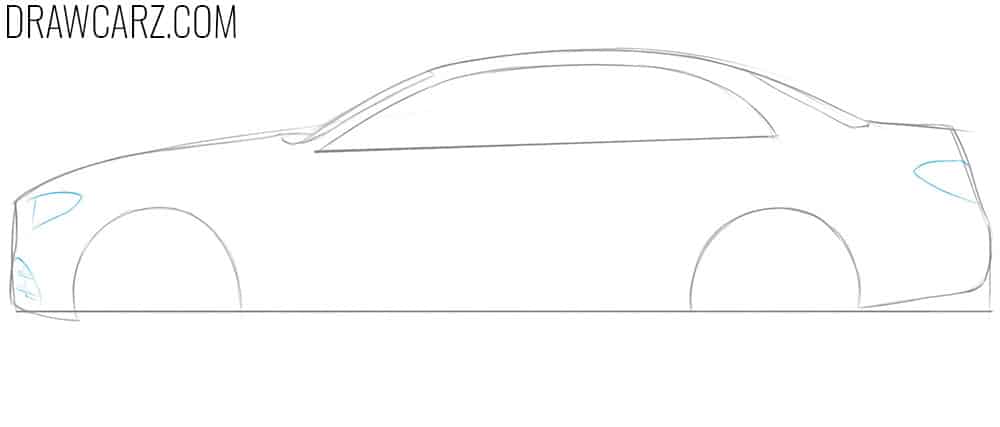
Step 5 – Draw out the Mercedes-Benz doors
Depict the center pillar within the window frame to divide the glass correctly. Under the window line, sketch the front and rear doors. Add a horizontal line beneath them that connects the wheel arches and created the car side skirt.
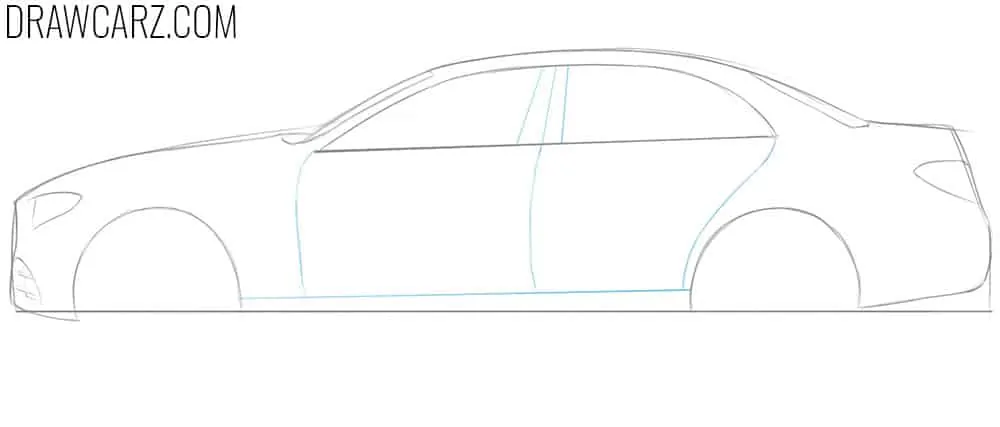
Step 6 – Draw the mirrors and handles of the E Class
Add the side mirrors at the front edge of the window frame. Draw the handles of the Mercedes Benz E-Class for the front and rear doors, with the rear handle positioned slightly higher. You can also add a small turn light on the side edge of the mirror.
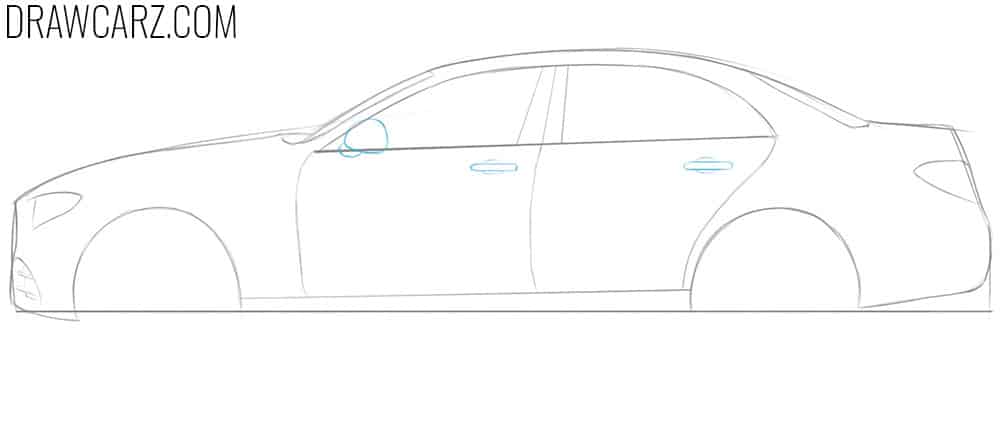
Step 7 – Remove construction lines and the tires
Erase unnecessary guidelines from the E-Class body. Then, draw the front and rear tires, giving them a perfectly round shape. Inside them, add the circular outlines for the rims. Both tires should sit firmly on the same line to avoid a tilted effect.
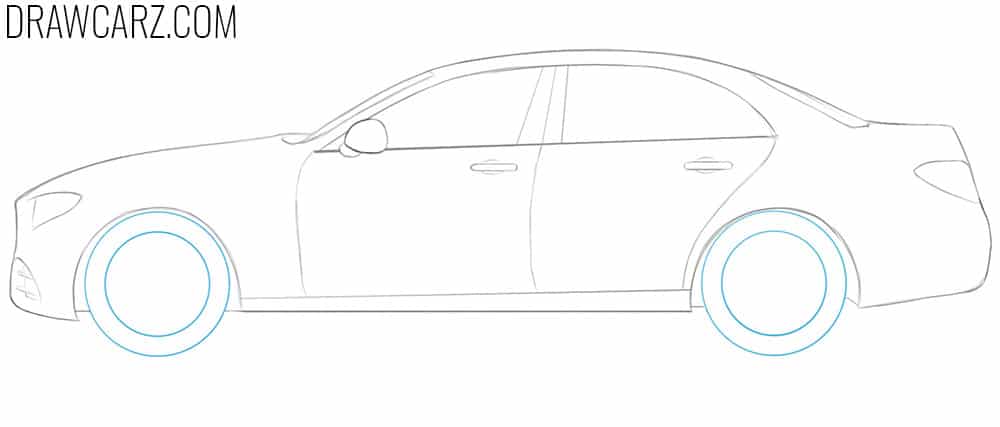
Step 8 – Begin shaping the E Class rim pattern
Start by drawing the central hub of each wheel. From it, extend the first few spoke lines toward the edges of the rim. Keep them equal in size and spacing. At this stage, the rims should already resemble the Mercedes style. Lightly check that both front and rear rims look the same size.
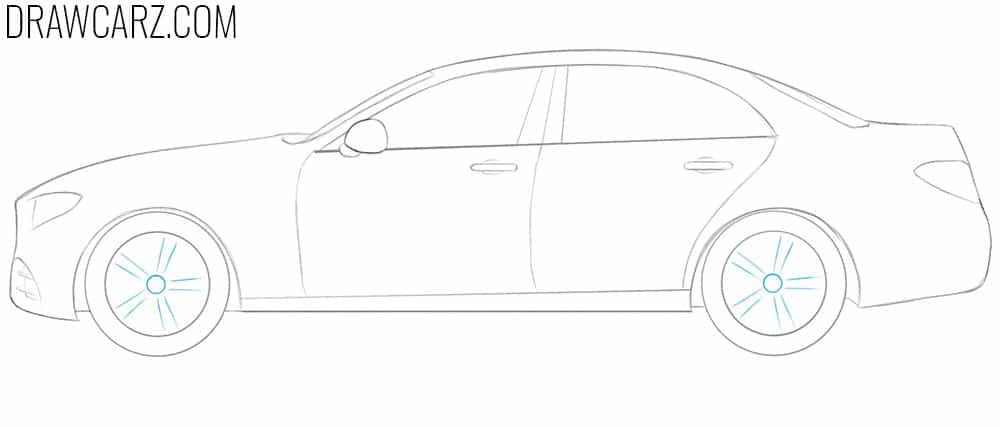
Step 9 – Refine the Mercedes-Benz rim structure
Complete the rims by adding all remaining spoke shapes, keeping their arrangement symmetrical. Ensure they radiate evenly from the hub to the edge. Correct any mistakes before moving to shading, as accurate rims are very important to realism.
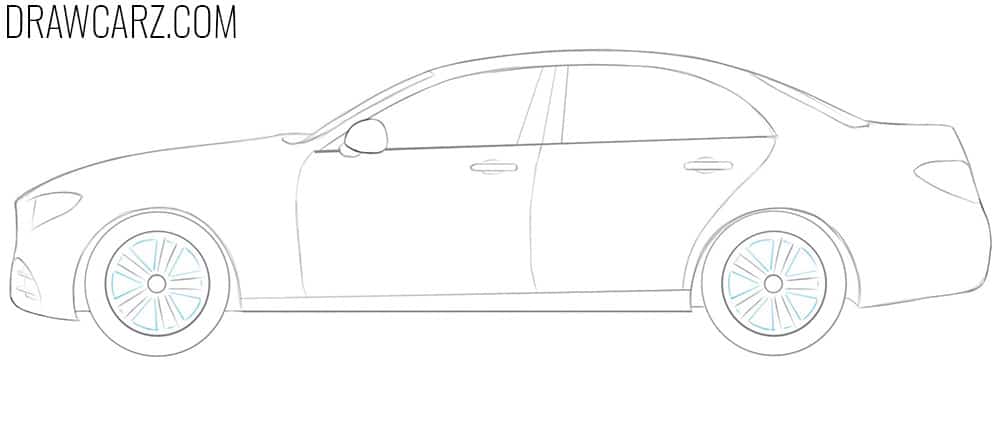
Step 10 – Establish the darkest tones across the body
Add shadows in the darkest areas, starting with the wheel arches, bumpers, mirrors, and door handles. Shade carefully, using controlled hatching to define form. Place glare on the windows and lights to represent glass reflections. Keep the light source consistent across the drawing.
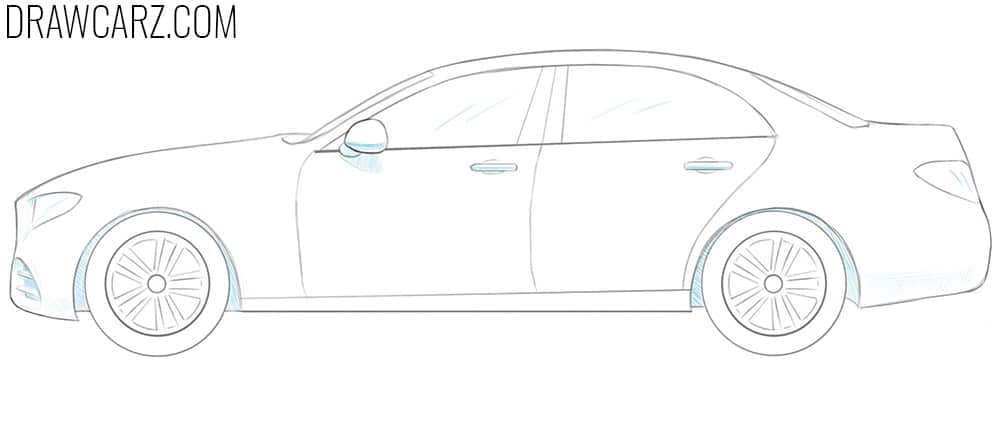
Step 11 – Add halftones on the Mercedes-Benz E Class
Continue shading by adding lighter shadows and halftones across the entire body. Build up the volume gradually with additional layers of shading. Deepen the darker zones for clarity and soften transitions where needed. At this stage, the car should start looking three-dimensional. You may also refine reflections on the body.
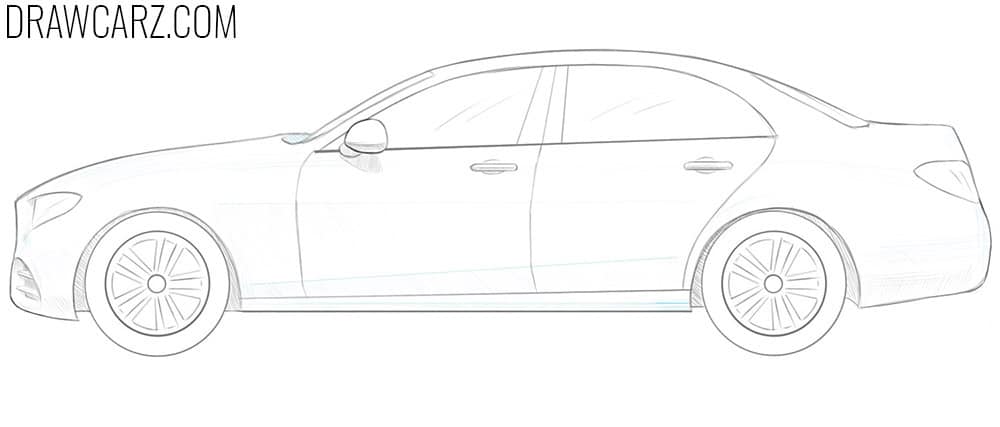
Step 12 – Fix mistakes by viewing the drawing
Compare your drawing with the reference version to check accuracy. Use a mirror or rotate the page to spot mistakes that may not be obvious otherwise. Correct proportions and adjust any uneven lines. Add a cast shadow under the car to make the car look more dimensional. Optionally, you can color the luxury car.
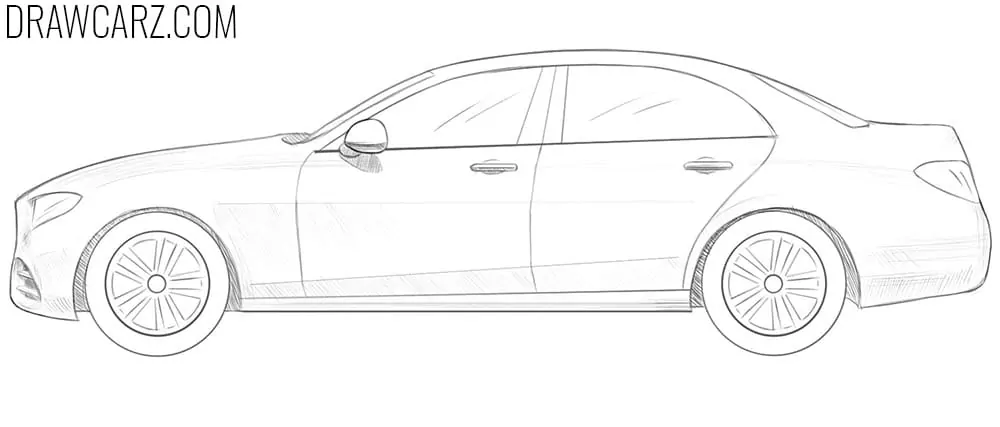
The E-Class is one of the most iconic models in the luxury sedan segment, often referred to as a business-class vehicle.
In this example, we sketched the W213 body, a car with highly recognizable lines and shapes.
To build on the skills practiced here, make sure to visit our Mercedes-Benz S-Class tutorial. It shares the same core design language but introduces in a more premium and exclusive form.
You should also check out our fundamental lesson on how to draw a car, where we demonstrate the full process using the Mercedes CLS. This model refines the flowing shapes of the brand’s style and expresses them in a distinctive four-door coupe.
If you found this tutorial helpful, subscribe to our updates so you won’t miss new lessons. Share this guide with others who might enjoy learning to sketch luxury and business cars and keep practicing to improve your technique.


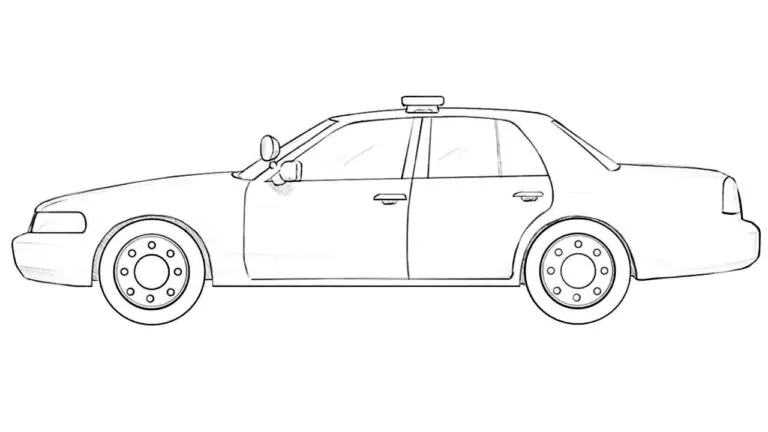
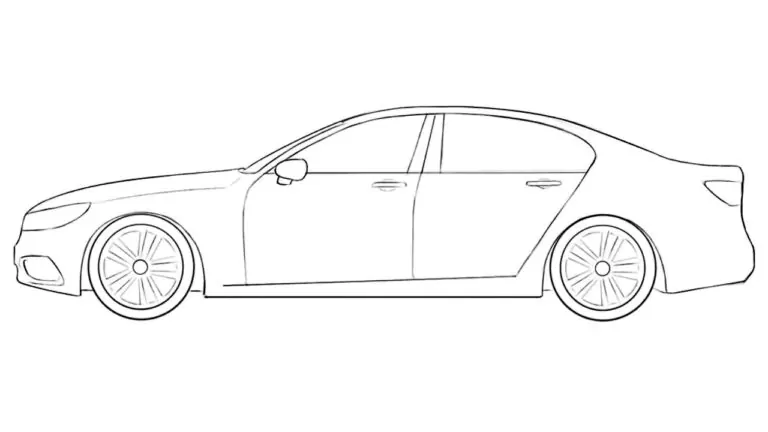
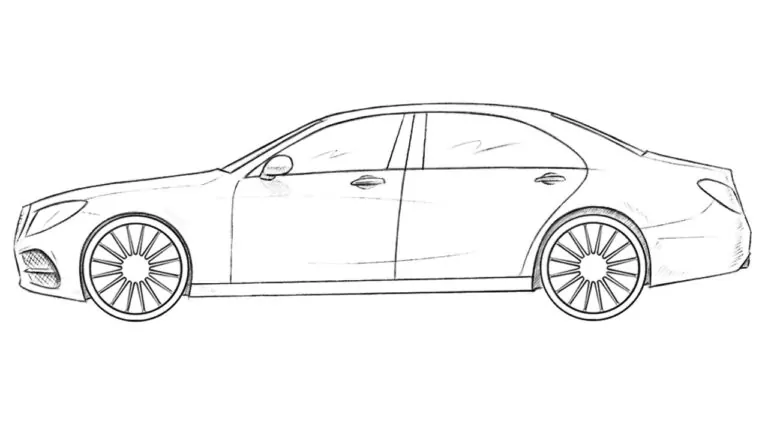


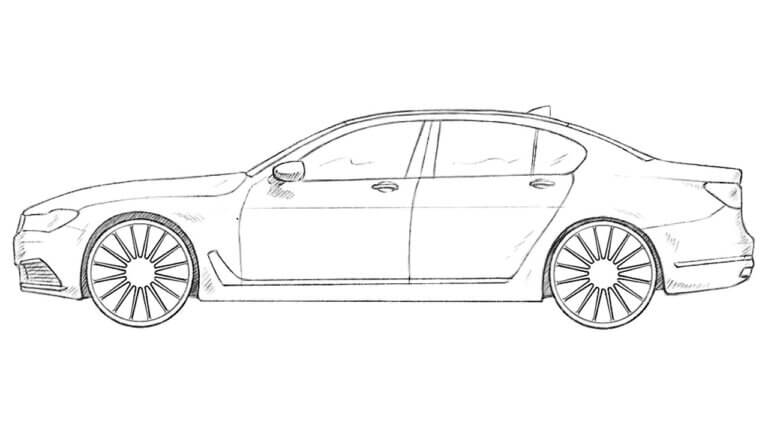
Good
Thanks, glad you liked it.
I do not draw the shadows right so it looks horrible.
Don’t worry, shadows take practice – try keeping the strokes lighter at first. And practice more – this will make your drawings better with every new sketch.